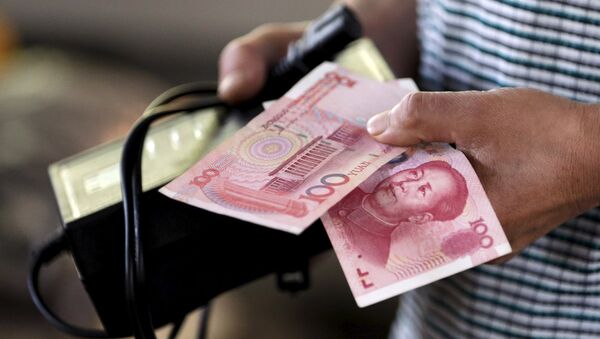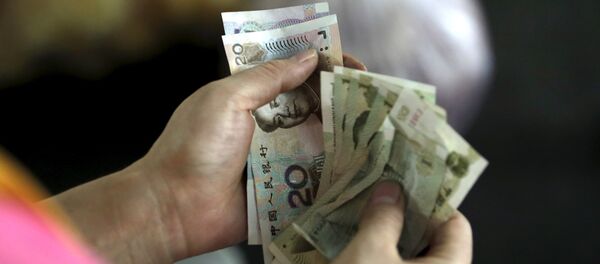At present, the reserve currencies basket is made up of the US dollar, the euro, the British pound sterling and the Japanese yen. The list has not been altered since 2000, when the euro replaced the French franc and the German Deutschmark.
Benjamin J. Cohen, a professor of international political economy at the University of California, Santa Barbara, calls the IMF decision a clearly political one.
"Evidently, decision makers at the IMF decided it was best to accommodate China rather than antagonize it, in hopes that this will encourage China to continue to work within the IMF system rather than build new institutions outside the IMF system (like the new AIIB)," he told Sputnik.
According to Cohen, it is "far from obvious" that the yuan meets the IMF criterion of being "freely usable" and the move could be intended to encourage China to undertake more market-oriented reforms of its financial system.
"But one may wonder, now that Beijing has achieved its goal, whether it will feel any need to do so. Again, time will tell," he pointed out.
Jayshree Sengupta, a senior fellow with the Observer Research Foundation (ORF), New Delhi, agrees with Cohen that the IMF decision was politically motivated.
"The IMF's move will definitely mean continuation of reforms in China's financial and banking sector," she told Sputnik adding that the IMF is first of all acknowledging the renminbi's growing importance in Chinese trade and investment with Russia, Latin America, Africa and ASEAN.
She added that including the yuan in the basket of reserve currencies, the IMF is also effectively saying that it considers the currency to be safe, reliable and freely usable and recognizes the progress China has made in its monetary and financial reforms.
Both experts concluded that although the IMF decision brings prestige to the yuan and strengthens its position in the global economy, the dollar will remain the dominant global currency.
The weight of the Chinese yuan in the reviewed basket of currencies will be 10.92 percent, while the share of the US dollar will remain 41.73 percent, the IMF said Tuesday.




